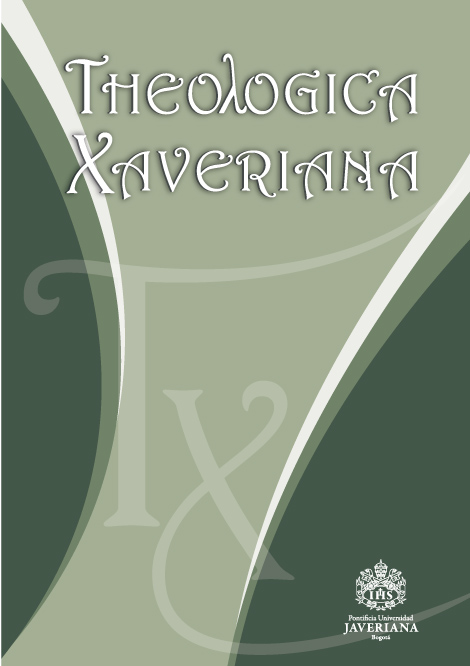Abstract
The paper analyzes the complex scenario of the issue of women. To do this, she outlines the feminine movement trajectory in the last few years, indicating a value of her own in its specificity. The study of Edith Stein’s reflections is relevant for understanding her biblical and anthropological foundations of the “differentiation” and “unity” between both sexes. In this regard, and supported by a phenomenology of religion, this study examines the peculiar way of being a man or a woman, along with the “common vocation” attributed to a human being. A complex reading of steiniana work and mainly her Conferences on Women makes it possible to clarify what this natural feminine and masculine vocation consists of and if they belong to an original order.
British Medical Association. “A Guide to Effective Communication: Inclusive Language in the Workplace (2016)”. West, https://www.west-info.eu/politically-correct-language-about-pregnancy-going-overboard/bma-guide-toeffective-communication-2016 (consultado el 2 de agosto de 2018).
Caballero Bono, José Luis. “Ejes transversales del pensamiento de Edith Stein”. Teología y vida 61 (2010): 39-58.
Gerl-Falkovitz, Hanna-Barbara. “La cuestión de la mujer según Edith Stein”. Anuario filosófico 1998 (31): 753-78.
Martínez, María Eliana. “Edith Stein y la formación de la mujer”. Cuadernos de teología 2 (2010): 60-74.
Meis, Anneliese. “La cuestión de la especificidad de la mujer en Edith Stein (1891-1942)”. Teología y vida 4 (2009): 747-796.
Redacción ACI Prensa. “Gobierno de Reino Unido obliga a escuelas católicas a eliminar las palabras ‘madre’ y ‘padre’”. Aciprensa, https://www.aciprensa.com/noticias/gobierno-de-reino-unido-obliga-a-escuelas-catolicas-a-eliminar-palabras-madre-y-padre-41215 (consultado el 2 de julio de 2018).
Sinay, Mario. “Heroismo femenino durante la Shoa. 1ª parte”. Diario judío México, 8 de octubre de 2014. Diariojudío.com, https://diariojudio.com/opinion/heroismofemenino-durante-la-shoa-1ra-parte/85859 (consultado el 6 de julio de 2018).
Stein, Edith. “Algunos documentos históricos personales de E. Stein y cartas relativas a ella”. En Obras completas. I. Escritos autobiográficos y cartas, 1657-1702. Burgos: Monte Carmelo, 2002.
_____. “El ethos de las profesiones femeninas”. En Obras completas. IV. Escritos antropológicos y pedagógicos, 158-176. Burgos: Monte Carmelo, 2003.
_____. “El ser social de la persona”. En Obras completas. IV. Escritos antropológicos y pedagógicos, 712-740. Burgos: Monte Carmelo, 2003.
_____. “El valor específico de la mujer en su significado para la vida del pueblo”. En Obras completas. IV. Escritos antropológicos y pedagógicos, 70-88. Burgos: Monte Carmelo, 2003.
_____. “Formación de la juventud a la luz de la fe católica”. En Obras completas. IV. Escritos antropológicos y pedagógicos, 420-442. Burgos: Monte Carmelo, 2003.
_____. “Fundamentación teórica de la formación de la mujer”. En Obras completas. IV. Escritos antropológicos y pedagógicos, 443-551. Burgos: Monte Carmelo, 2003.
_____. “Fundamentos de la formación de la mujer”. En Obras completas. IV. Escritos antropológicos y pedagógicos, 195-214. Burgos: Monte Carmelo, 2003.
_____. “Natural y sobrenatural en el Fausto de Goethe”. En Obras completas. IV. Escritos antropológicos y pedagógicos, 359-372. Burgos: Monte Carmelo, 2003.
_____. “Ser finito y ser eterno. Ensayo de una ascensión al sentido del ser”. En Obras completas. III. Escritos antropológicos y pedagógicos, 610-1202. Burgos: Monte Carmelo, 2002.
_____. “Sobre el problema de la empatía”. En Obras completas. II. Escritos filosóficos. Etapa fenomenológica, 55-206. Burgos: Monte Carmelo, 2002.
_____. “Vocación del hombre y de la mujer según el orden de la naturaleza y la gracia”. En Obras completas. IV. Escritos antropológicos y pedagógicos, 271-296. Burgos: Monte Carmelo, 2003.
Zoja, Luigi. El gesto de Héctor. Prehistoria, historia y actualidad de la figura del padre. Roma: Taurus, 2016.
This journal is registered under a Creative Commons Attribution 4.0 International Public License. Thus, this work may be reproduced, distributed, and publicly shared in digital format, as long as the names of the authors and Pontificia Universidad Javeriana are acknowledged. Others are allowed to quote, adapt, transform, auto-archive, republish, and create based on this material, for any purpose (even commercial ones), provided the authorship is duly acknowledged, a link to the original work is provided, and it is specified if changes have been made. Pontificia Universidad Javeriana does not hold the rights of published works and the authors are solely responsible for the contents of their works; they keep the moral, intellectual, privacy, and publicity rights.
Approving the intervention of the work (review, copy-editing, translation, layout) and the following outreach, are granted through an use license and not through an assignment of rights. This means the journal and Pontificia Universidad Javeriana cannot be held responsible for any ethical malpractice by the authors. As a consequence of the protection granted by the use license, the journal is not required to publish recantations or modify information already published, unless the errata stems from the editorial management process. Publishing contents in this journal does not generate royalties for contributors.



